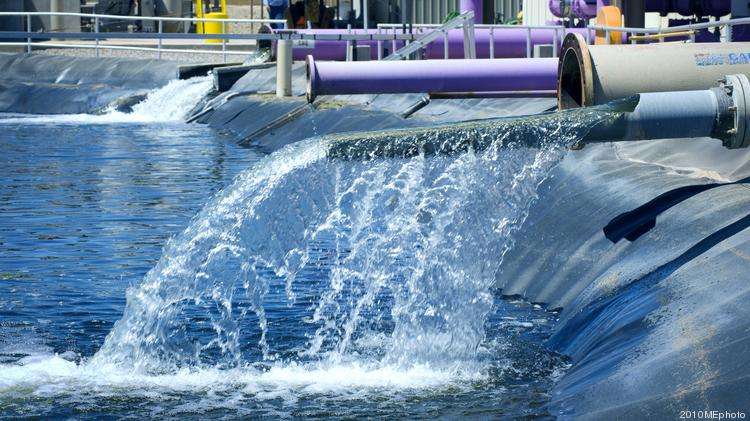
Wastewater Reuse: A Vital Solution for Today’s Environmental and Economic Challenges
In today’s world, where both economic pressures and environmental concerns are intensifying, the reuse of wastewater has become a key issue. Many activities at industrial and municipal sites generate wastewater, which, if not properly treated, can release harmful pollutants into the environment. Membracon, a global leader in sustainable solutions, is tackling this problem head-on by using advanced technologies to treat wastewater, making it safe and reusable for various needs.
Why Treat and Reuse Wastewater?
The impact of untreated wastewater is severe and far-reaching. Shockingly, nearly a third of the world’s population drinks water under poor conditions, according to UNICEF and the World Health Organisation. This stark reality highlights the urgent need for effective wastewater treatment.
As freshwater resources become scarcer, especially in some parts of the world, reusing wastewater is a practical and sustainable way to tackle water shortages. By treating wastewater so it can be recycled, we extend the life of this precious resource, reducing our reliance on limited freshwater supplies and easing the strain on the environment. Additionally, wastewater reuse helps businesses comply with strict regulations on water use and environmental protection, preventing pollution and ecological damage.
Membracon’s Approach: Safe and Sustainable Water Reuse
At Membracon, we’ve developed processes that remove pollutants from wastewater, making it safe to reuse for various applications while reducing environmental impact. Whether serving municipal or industrial clients, we offer a wide range of proven technologies and services to effectively treat even the most challenging wastewater. Our solutions not only support the responsible reuse of water but also ensure that the cleaned water discharged is safe for the environment.
The Benefits of Reusing Wastewater
- Increased Water Availability: Reusing wastewater ensures a steady supply of clean, safe water, which is crucial as freshwater resources dwindle. It can be treated to meet industrial needs or even higher quality standards, including for drinking water.
- Cost Savings: As water prices rise, treating and reusing wastewater becomes a cost-effective solution, offering significant long-term savings while helping companies comply with stricter regulations.
- Environmental Protection: Our processes remove harmful pollutants and pathogens from wastewater, preventing them from entering and damaging ecosystems.
- Resource Conservation: Recycling water reduces the pressure on natural water reserves, helping to prevent droughts and water restrictions that could affect agriculture, livestock, and households.
How To Reuse and Recycle Wastewater
For Industrial Wastewater Reuse:
- Membrane Filtration Systems: Technologies like reverse osmosis (RO) and nanofiltration (NF) are highly effective at removing dissolved solids, contaminants, and impurities, producing high-quality water that can be reused in various industrial processes.
- Biological Treatment Processes: These include activated sludge systems, membrane bioreactors (MBRs), and moving bed biofilm reactors (MBBR). They use microorganisms to break down organic matter and remove contaminants, making the water suitable for reuse in systems like cooling and boiler feed water.
- Advanced Oxidation Processes (AOPs): AOPs use powerful oxidisers, such as ozone or UV light, to break down stubborn organic compounds and eliminate persistent contaminants, ensuring the treated water meets strict quality standards for reuse.
- Zero Liquid Discharge (ZLD) Systems: For industries with concentrated wastewater, ZLD systems use technologies like evaporation and crystallisation to recover valuable resources and produce high-quality water for reuse, reducing liquid waste to near zero.
For Municipal Wastewater Reuse:
- Membrane Bioreactors (MBRs): These combine biological treatment with membrane filtration, producing highly treated water that can be reused for industrial processes or even safely added to drinking water supplies.
- Moving Bed Biofilm Reactors (MBBRs): MBBR systems use suspended carriers to provide a large surface area for biofilms, which enhance the treatment process. They efficiently remove organic matter and nutrients from wastewater, making it suitable for reuse.
- Tertiary Filtration and Disinfection: Technologies like granular media filters and membrane filters polish the treated wastewater, removing any remaining solids. UV disinfection systems then kill harmful microorganisms, ensuring the water is safe for reuse.
- Advanced Treatment Technologies: High-performance RO and NF systems remove dissolved solids and impurities, producing water that’s fit for drinking or industrial use. Additionally, AOPs help remove emerging contaminants, making the water safe for reuse.
